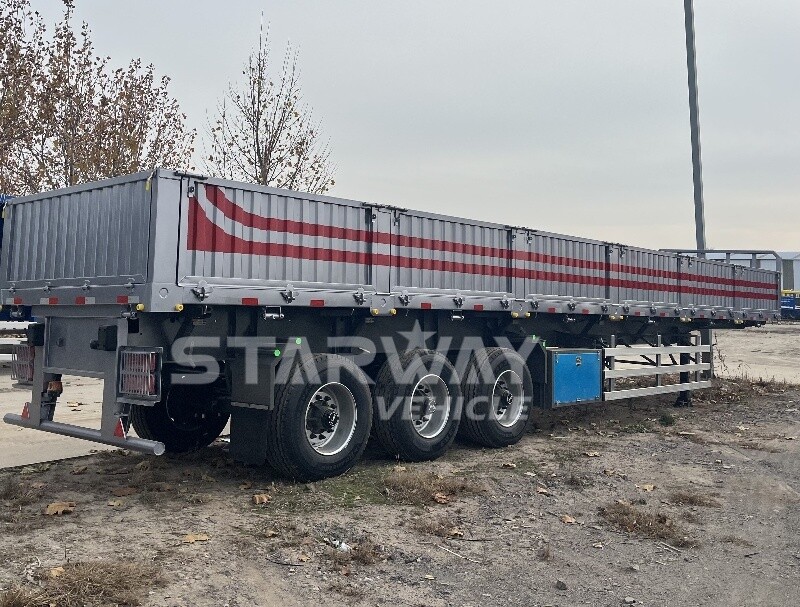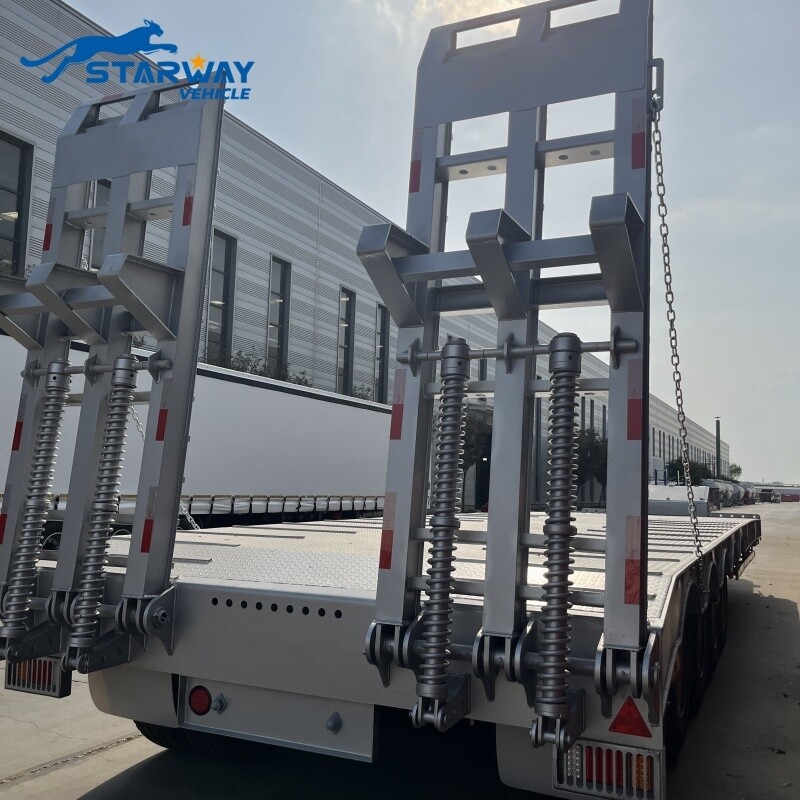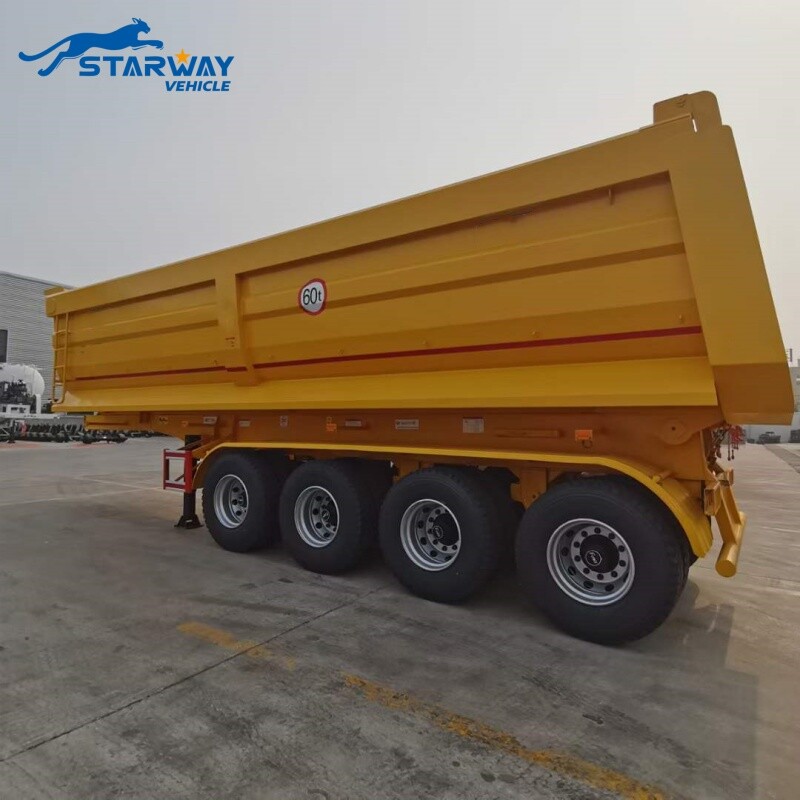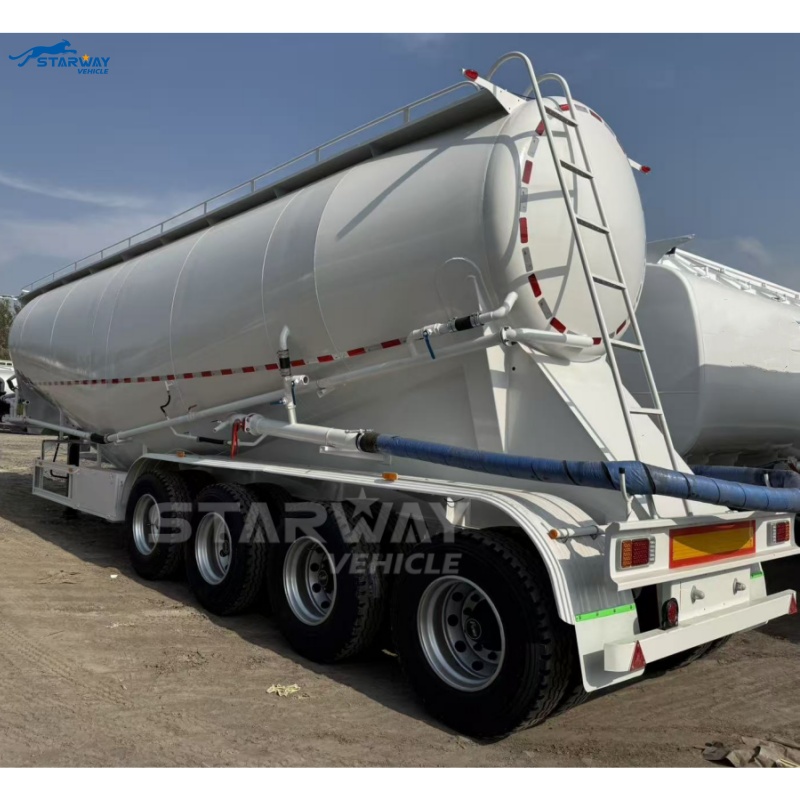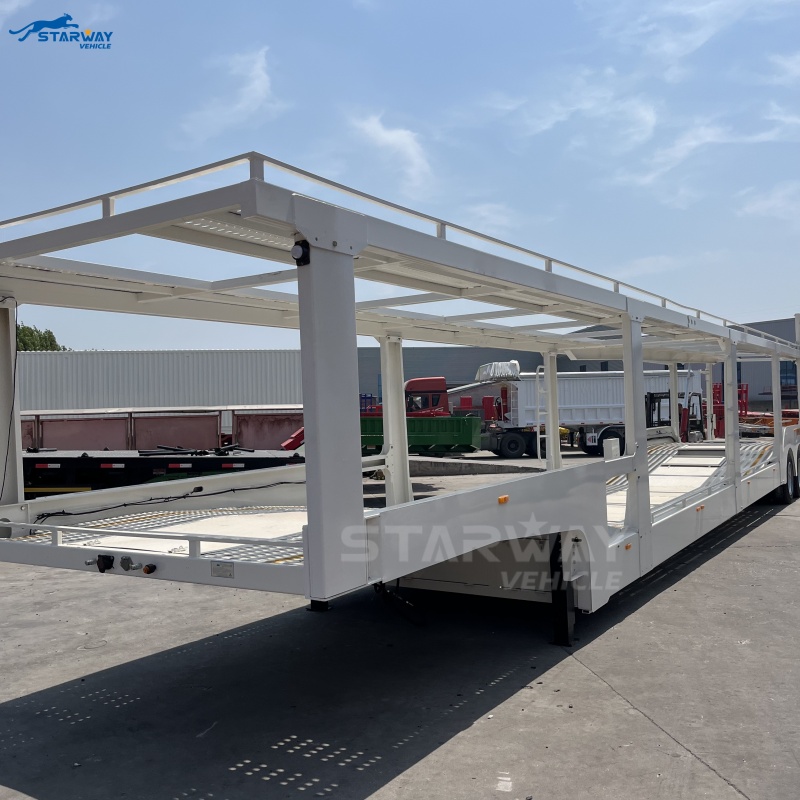Recent Posts
 What Are the Common Problems with 3-Axle Sidewall Semi Trailers and How to Fix Them?2026-01-12
What Are the Common Problems with 3-Axle Sidewall Semi Trailers and How to Fix Them?2026-01-12 How to Prevent Stake Pocket Corrosion and Structural Fatigue on Flatbed Trailers?2026-01-29
How to Prevent Stake Pocket Corrosion and Structural Fatigue on Flatbed Trailers?2026-01-29 Affordable 4-axle Tipper Semi Trailer | Free Quote2026-01-16
Affordable 4-axle Tipper Semi Trailer | Free Quote2026-01-16 Advanced Structural Analysis of 4-Axle Cement Tankers: Material Science & Load Distribution2026-02-06
Advanced Structural Analysis of 4-Axle Cement Tankers: Material Science & Load Distribution2026-02-06 What Is a 2-Axle 20m Car Carrier Semi Trailer? A Beginner’s Guide for Logistics Newcomers2026-02-02
What Is a 2-Axle 20m Car Carrier Semi Trailer? A Beginner’s Guide for Logistics Newcomers2026-02-02
Flatbed Trailer Maintenance: Avoid These Costly Mistakes
Flatbed Trailer Maintenance: Avoid These Costly Mistakes
Whether you operate a gooseneck trailer for heavy equipment transport or a flatbed for construction materials, proper maintenance directly impacts your bottom line. Neglecting routine care leads to accelerated wear, safety violations, and costly unplanned downtime. This guide exposes the most common maintenance pitfalls and provides actionable solutions from industry professionals.
1. Ignoring Frame and Structural Integrity
The trailer frame bears the brunt of road stress and load impacts. Many owners focus solely on cosmetic issues while missing critical structural problems. For both gooseneck and flatbed trailers, conduct monthly inspections of:
Critical Inspection Points
• Crossmember welds for hairline cracks
• Gooseneck coupling area stress points
• Corrosion in hidden channels and seams
• Deck support brackets and mounting hardware
Use a bright flashlight and mirror to examine hard-to-see areas. Address any cracks or corrosion immediately before they compromise structural integrity.
2. Improper Lubrication Practices
Lubrication mistakes create unnecessary wear on critical components. Avoid these common errors:
Lubrication Do's and Don'ts
• DON'T use WD-40 as a lubricant - it's a cleaner/water displacer
• DO use lithium-based grease for suspension components
• DON'T overgrease bearings - causes seal damage
• DO lubricate fifth wheel/gooseneck mechanisms monthly
Create a lubrication schedule based on mileage and operating conditions. Harsh environments may require more frequent servicing.
3. Neglecting Electrical System Maintenance
Trailer lighting and braking systems demand regular attention. Faulty wiring causes 27% of roadside inspections violations according to DOT data. Implement these electrical maintenance practices:
Electrical Maintenance Checklist
• Test all lights before each trip
• Inspect wiring harnesses for chafing or damage
• Clean and dielectric grease all connectors
• Verify brake controller functionality monthly
• Check battery terminals on electric brake systems
Consider upgrading to LED lights for improved visibility and reduced power draw on your gooseneck or flatbed trailer.
4. Improper Tire Maintenance
Trailer tires face unique challenges from scrubbing to uneven loading. Follow these tire care essentials:
Tire Maintenance Best Practices
• Maintain proper inflation (check when cold)
• Rotate tires every 6,000 miles
• Balance tires annually
• Inspect for irregular wear patterns
• Use quality valve stems and caps
Remember that trailer tires often wear out from age before tread depletion. Replace tires every 5-7 years regardless of appearance.
5. Skipping Professional Inspections
Even diligent owners benefit from annual professional inspections. Certified technicians can identify issues you might miss:
What Professionals Check
• Frame alignment and twist measurements
• Suspension component wear
• Brake system integrity
• Hidden corrosion points
• Safety chain and coupling wear
Schedule inspections during slower periods to minimize downtime. Many dealers offer preseason checkup specials for flatbed and gooseneck trailers.
Implementing a Maintenance Routine
Develop a customized maintenance schedule based on:
• Annual mileage
• Load types and weights
• Operating environment
• Trailer age and condition
• Manufacturer recommendations
Invest in quality maintenance tools and keep detailed service records. Proper care extends trailer lifespan by 40-60% according to industry studies, delivering significant ROI on your flatbed or gooseneck trailer investment.
Leave A Reply

